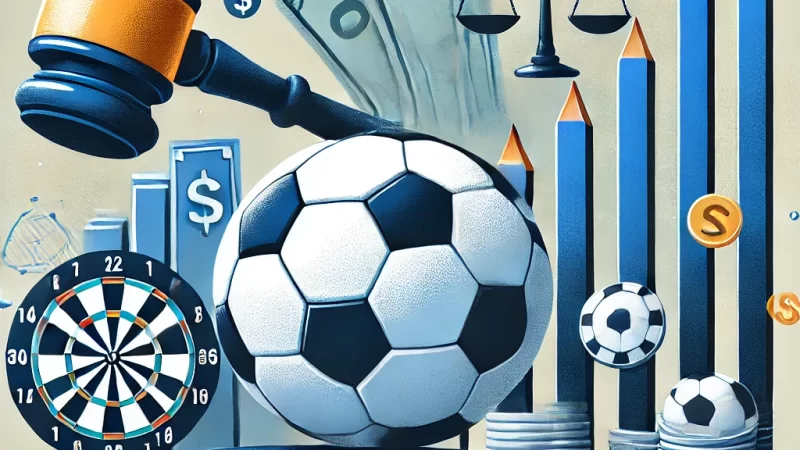Blahut expects a significant inventory shift to occur when mortgage rates return to the 5% range. So what does that mean for the housing market once the predicted recession is in the rearview mirror? Whether the data means we will enter a recession at some point in 2024 or manage a so-called “soft landing” depends on who you ask. The rise in mortgage interest rates is due, in part, to the efforts of the Federal Reserve to tamp down inflation, which began surging in 2021 and hit a 40-year high of over 9% in June 2022. Forbes Advisor asked several housing experts for their predictions on where the housing market might head in the next five years. While most experts expect the housing market will come back into balance, there are warning signs for what may lie ahead.
“It was one of the most active supply-producing situations. So we had an oversupply.” The best time to buy a home varies by individual and depends more on one’s financial health, life goals and if you’re ready to commit to putting down roots. The country has an acute housing supply problem—and likely will for a while. Another looming issue is the further weakening of commercial property valuations, which may prompt local governments to raise residential property taxes to make up for tax revenue shortfalls. Though the Fed paused rate hikes the past two meetings and Fed watchers believe this signals that rate increases are over, elevated rates are likely to persist, at least for the near term.
“I don’t expect a housing market crash in 2024 as a steady economy and labor market continue to underpin household income and balance sheets,” says Danielle Hale, chief economist at Realtor.com. Skylar Olsen, chief economist at Zillow, agrees about the supply-and-demand imbalance. Her latest forecast says home prices will keep rising into 2024 – welcome news for sellers but not vantage fx review 2021 user ratings bonus demo and more so great for first-time buyers struggling to become homeowners. “We’re not in that space where things are suddenly going to be more affordable,” Olsen says. “The housing recession is essentially over,” said Lawrence Yun, NAR’s chief economist. Home values held steady even as mortgage rates soared to 8% in October 2023, reaching their highest levels in more than 23 years.
- At the same time, home builders were rapidly building new homes to meet increasing demand.
- One study from the Federal Reserve Bank of San Francisco found that remote work was a key driver of the rise in housing prices.
- “Housing affordability fell to a decade-low during the third quarter of 2020,” Robert Dietz, the SVP and chief economist of the National Association of Homebuilders, told Insider.
- As a result, the correction will be nothing like the utter collapse of property prices during the Great Recession, when some housing markets experienced a 50% cratering of values.
- While home builders are slowly increasing housing supply, the recent uptick in mortgage rates is likely to put additional pressure on affordability.
- Economists at the National Bureau of Economic Research (NBER) describe a recession as a prolonged period lasting at least a few months during which there is a significant and widespread decline in economic activity.
Housing economists point to five compelling reasons that no crash is imminent. “For those who have some flexibility to go further out into the suburbs exurbs or even smaller towns, the next county, there’s better affordability,” Yun says. There are many reasons why homeownership is particularly expensive these days.
Existing home prices
That affordability squeeze is exacerbated by the fact that mortgage rates have more than doubled since August 2021. Prices increased once again in July, according to the latest S&P CoreLogic Case-Shiller home price index, with 19 out of 20 markets measured showing month-over-month gains. In another reflection of ongoing increases, the National Association of Realtors (NAR) reports that median home prices as of September were up nearly 3 percent over last year — the third month in a row of year-over-year jumps. While home prices have increased rapidly, spurring speculation that we could be experiencing a housing bubble, most experts don’t believe that we are.
Make sure you’re taking advantage of all the assistance available to you. Look for first-time homebuyer loans and grants offered by lenders, as well as https://www.day-trading.info/financial-spread-betting-companies-top-10-brokers/ down payment assistance offered by your state or municipality. “Home builders were producing right and left, so much home construction,” Yun says.
Taking all this into account, housing economists and analysts agree that any market correction is likely to be a modest one. No one expects price drops on the scale of the declines experienced during the Great Recession. Thanks to high mortgage rates, mortgage refinance rates, and even higher home prices, the mood among hopeful homebuyers has been fairly bleak.
Is the housing market going to crash?
High mortgage rates and home prices amid a recession would push more would-be buyers out of the market. Prices increased once again in December, according to the NAR, which reports that median existing-home prices were up 4.4% over last year – the sixth month in a row of year-over-year jumps. In another reflection of ongoing increases, the latest S&P CoreLogic Case-Shiller home price index showed a 4.8% jump in October that represented the ninth month in a row of gains. Spurred by cheap mortgage debt and the need for more space, buyers are clamoring for a limited amount of inventory, and home sellers capitalize on that by raising prices. Since 2020, buyer competition has intensified, sparking bidding wars and crushing affordability, especially for first-time buyers. The most recent housing bubble is borne out of a severe imbalance in the real estate market.
Rates on 30-year mortgages have been hovering just below 7 percent, up from below 3 percent as recently at 2021. While sales have slowed markedly amid higher interest rates, both home prices and rents remain sharply higher than before the pandemic. The question now is whether the recent developments will cool costs down.
Are We In a Housing Bubble?
In Fannie Mae’s most recent National Housing Survey, only 17% of consumers said they think it’s a good time to buy a home. For one, during the pandemic, demand for homes outpaced the limited supply. Home buyers also took advantage of pandemic stimulus checks and rock-bottom interest rates to either relocate or buy larger homes to accommodate remote working situations.
Warning Signs That Could Dampen the Housing Market
As houses are the among the largest sources of wealth for many Americans, a plunge in home prices could lead to a serious wealth destruction that could take people many years to build back up. Almost as soon as home prices began their unprecedented climb in 2020, doomsayers began warning https://www.forexbox.info/beyond-technical-analysis/ of a looming crisis. If you can’t afford to buy in your current city, consider looking elsewhere. Talk to a local real estate agent to find out if you can find more affordability a few towns over. Many times, average home prices can differ quite a bit from one zip code to the next.



